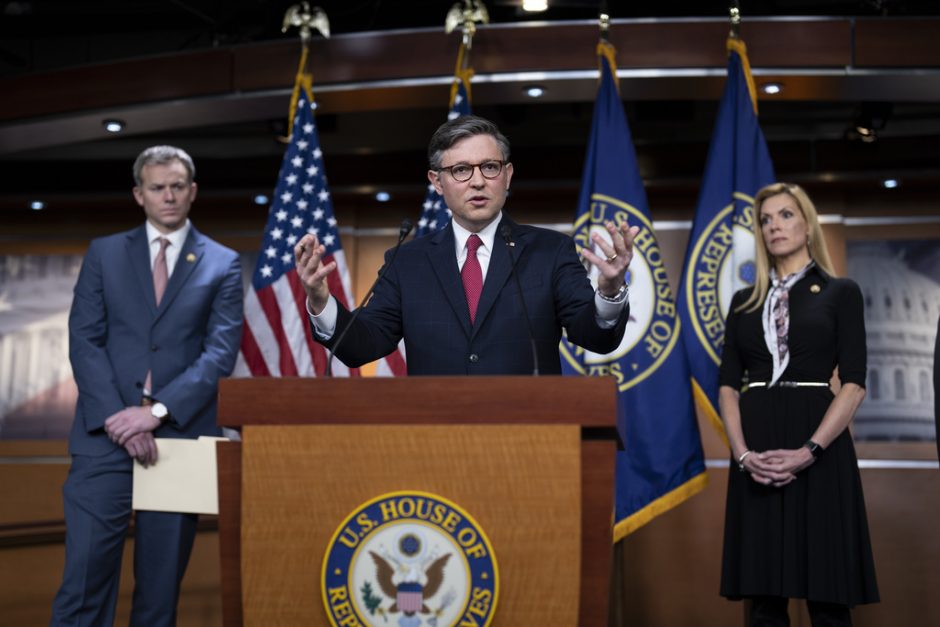
WASHINGTON (AP/NCC NEWS) – Another short term spending measure was passed by the House on Thursday.
The measure would keep one set of federal agencies functioning through March 8 and a second set through March 22. This would prevent a shutdown in certain parts of the federal government that would have otherwise happened in this Saturday.
The Senate is expected to vote on the bill later today.
The short-term extension of the measure is the fourth in the past year and it is expected to be the last for the current fiscal year.
House Speaker Mike Johnson said six of the annual spending bills that fund the federal agencies were completed by negotiators who had “almost final agreement on the others.”
“We’ll get the job done,” Johnson said.

The process now expected to extend into the end of March, and Congress is set to agree to more than $1.6 trillion used in spending for the fiscal year that began on Oct. 1. That figure is what was negotiated on between former Speaker Kevin McCarthy and the White House last year.
Rep. Chuck Fleischmann, R-Tenn., countered before the vote that shutdowns are damaging and encouraged lawmakers to vote for the short-term extension.
“I want the American people to know Mr. Speaker that this negotiation has been difficult, but to close the government down at a time like this would hurt people who should not be hurt,” Fleischmann said.
The split within the GOP conference and the House majority has slowed efforts to get the spending bills passed in a timely manner. With the Senate also working to complete work on all 12 appropriations bills, lawmakers have resorted to a series of short-term measures to keep the government funded.
The Senate is expected to take up the bill before sending it to President Biden’s desk before Friday’s midnight deadline.
The temporary extension funds the departments of Agriculture, Transportation, Interior and others through March 8. It also funds the Pentagon, Homeland Security, Health and Human Services and the State Department through March 22.
The renewed focus on this year’s spending bills doesn’t include the separate, $95.3 billion aid package that the Senate approved for Ukraine, Israel and Taiwan earlier this month, with much of that money being spent in the U.S. to replenish America’s military arsenal.




